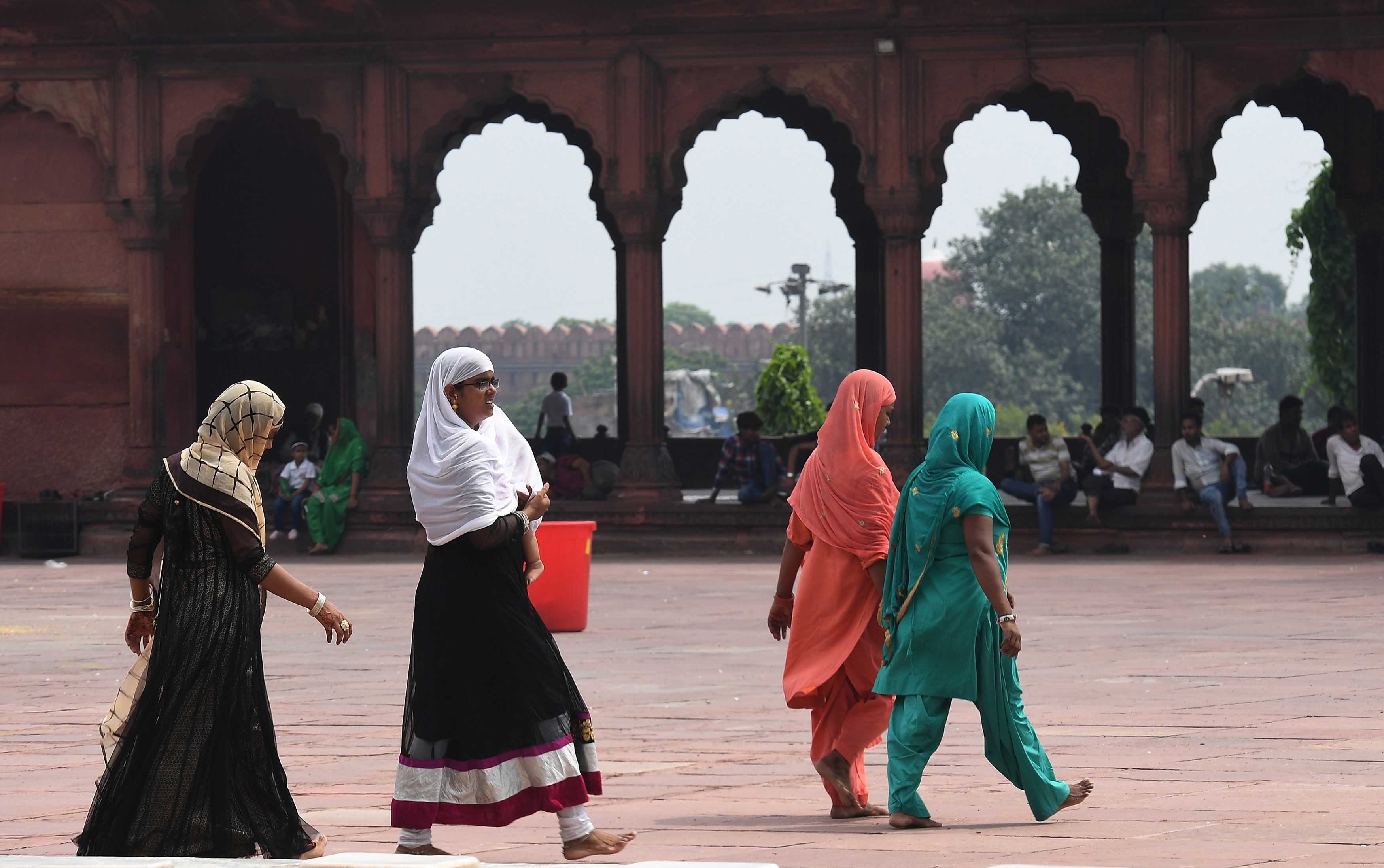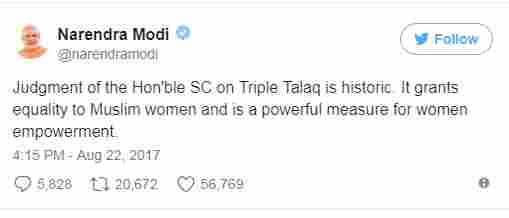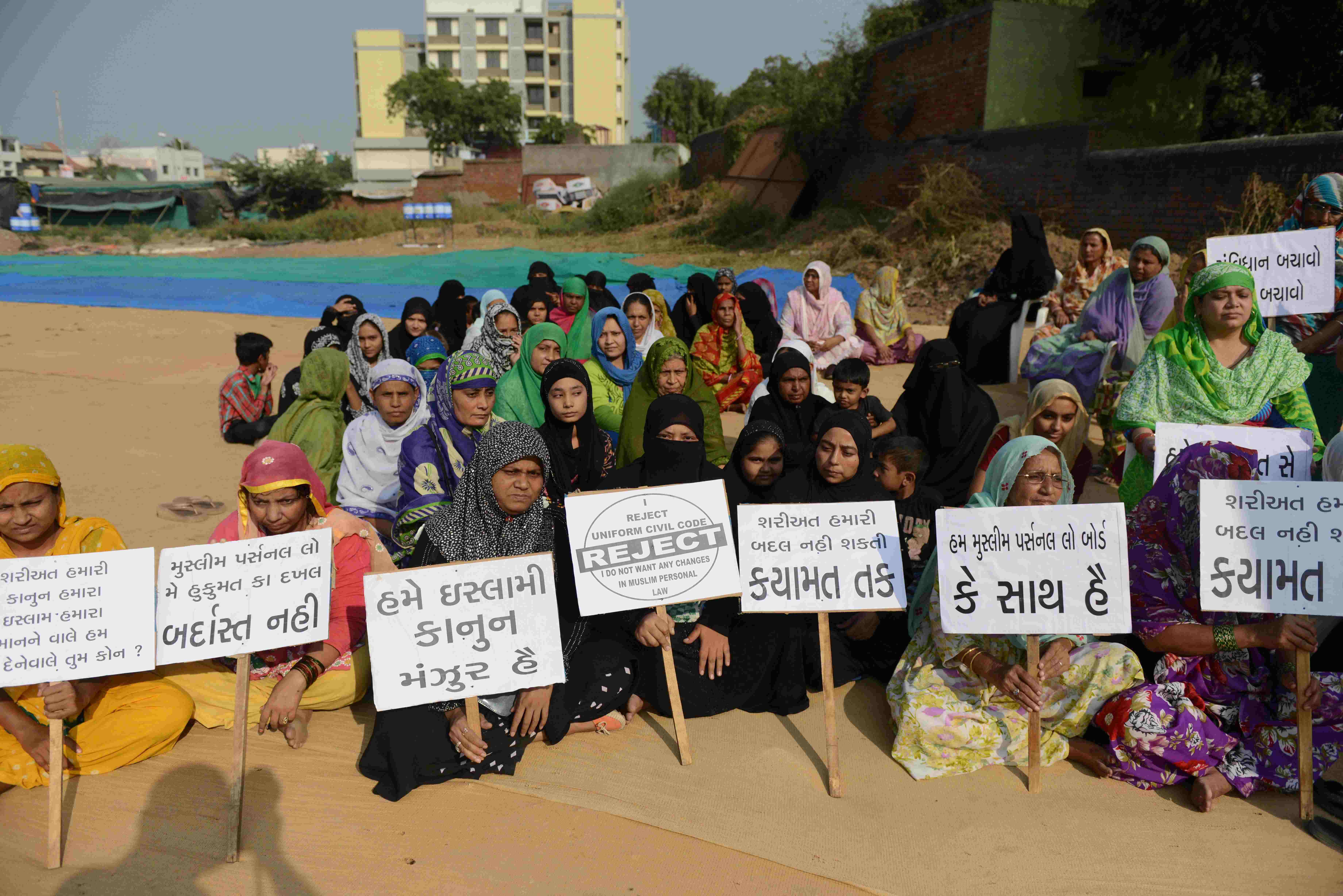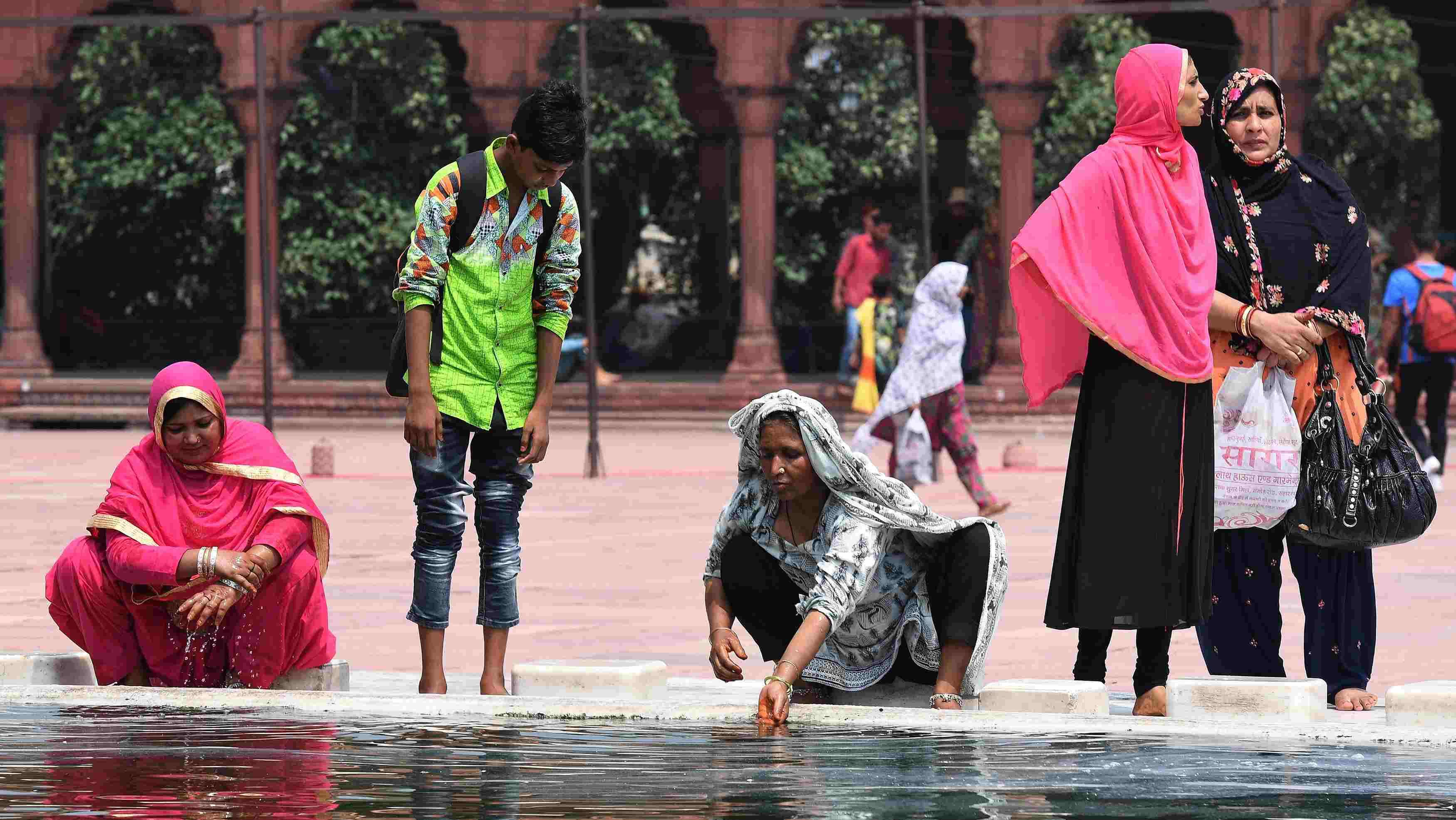In a landmark ruling hailed by activists as a progressive and historic win, India’s Supreme Court on Tuesday
banned the controversial Islamic divorce practice known as “triple talaq.” Triple talaq enables a man to simply utter the dreaded word “divorce” thrice and unilaterally divorce his wife.
Many cases have come to light where women are now increasingly divorced over media platforms such as Skype, text message and WhatsApp. The high tribunal in Delhi took up the issue last year in response to a petition from victims and women’s groups.
A majority of the bench declared on Wednesday that triple talaq was “not integral to religious practice and violates constitutional morality.”
Advocates welcomed the decision as a huge victory for the 90 million Muslim women of India.

Indian Muslim women visit the Jama Masjid mosque in New Delhi on August 22, 2017. India's top court on August 22 banned a controversial Islamic practice that allows men to divorce their wives instantly, ending a long tradition that many Muslim women had fiercely opposed./AFP Photo
Indian Muslim women visit the Jama Masjid mosque in New Delhi on August 22, 2017. India's top court on August 22 banned a controversial Islamic practice that allows men to divorce their wives instantly, ending a long tradition that many Muslim women had fiercely opposed./AFP Photo
“It’s a very happy day for us. It’s a historic day,” said Zakia Soman, the co-founder of the Mumbai-based Bharatiya Muslim Mahila Andolan (BMMA), an activist group that was party to the legal battle, in an interview with The Guardian.
“We, the Muslim women, are entitled to justice from the courts as well as the legislature.”
According to a survey conducted by BMMA, nearly 92 % of Muslim women want a total ban on oral unilateral divorce. One in every 11 Muslim women suffered from the practice, with the majority of them receiving no alimony or compensation.
The practice that stretches back over a thousand years, triple talaq has long been banned in other Muslim countries like Pakistan, Bangladesh and Indonesia. It persisted in India because the country’s Muslim, Hindu and Christian communities are permitted to operate based on religious law in personal matters such as marriage, divorce, inheritance and adoption.
India’s Muslim community is also generally poorer and less educated than others, making it harder for women to seek legal and social campaigns against the practice.
Since India’s independence, various politicians have proposed an overarching law known as the Uniform Civil Code, which would make separate religious laws obsolete and create one system for every citizen.
Law vs religion
The five-judge bench, each belonging to India’s main faiths – Hinduism, Christianity, Islam, Sikhism and Zoroastrianism – did not unanimously ban the practice, which Balaji Srinivasan, one of the lawyers on the case, called "disappointing."
Three judges ruled it was unconstitutional, saying it was “manifestly arbitrary” to allow a husband to “break down [a] marriage whimsically and capriciously.” The minority, however, issued a dissenting judgment that said it should be up to Parliament to pass legislation officially banning the practice.
Indian Prime Minister Narendra Modi and his Hindu nationalist government who have been long pushing for a uniform civil code had backed the petitioners in the case.

In a tweet on his official account, the prime minister called the court's decision "historic," adding that it "grants equality to Muslim women and is a powerful measure for women empowerment.
In a tweet on his official account, the prime minister called the court's decision "historic," adding that it "grants equality to Muslim women and is a powerful measure for women empowerment.
Amid praise for the decision, Islamic leaders have expressed concerns on meddling with Muslim personal laws in favor of a uniform civil code. The All India Muslim Personal Law Board (AIMPLB), a peak body of Islamic organizations, argued against the supreme court interfering in religious law.
Indian newspaper The Hindu quoted an executive member as saying that the judgment would have “wide ramifications” as it affected the religious rights of minority groups.

Indian Muslim women participate in a rally to oppose the Uniform Civil Code (UCC) that would outlaw the practice of "triple talaq" in Ahmedabad on November 4, 2016. / AFP Photo
Indian Muslim women participate in a rally to oppose the Uniform Civil Code (UCC) that would outlaw the practice of "triple talaq" in Ahmedabad on November 4, 2016. / AFP Photo
Flavia Agnes, activist and founder of Majlis Law Center, says “asking Parliament to pass a law is the right approach. But this Parliament does not have adequate Muslim representation. How can a majority pass a law for the minority?”
“Also, what is to stop Muslim men from simply abandoning their wives? There is the risk that the cost of litigation and fear of courts will lead to more women being abandoned," she added.
Asma Zahra of Women’s Wing, All India Muslim Personal Law Board has a mixed reaction: “The rights of the Muslim community are guaranteed by the Constitution. Any interference of our religious rights amounts to an attack on our constitutional rights. Some matters are private to a community, and our right to uphold them must be respected.”
“Triple talaq is not against women; in some cases, it offers her a quick exit from a bad marriage. In any case, it is a vanishing practice. What the government really needs to focus on are education, employment and economic empowerment.”
Gender justice
Despite differing views, others still view the development as the first steps in achieving partial equality while acknowledging other factors and laws that hinder women’s rights.
The ban was made possible because Muslim women are starting to speak up. Even Modi argued that India cannot allow the lives of Muslim women to be ruined by three words over the phone.
But for the women fighting the case, at the end of the day, the fight is not political. It is about true equality.
"My creator cannot create me in a way that I am subservient to another human being. My creator cannot make me secondary to a man just because I'm a woman," said BMMA co-founder Noorjehan in January.
"That gave me the strength to question patriarchal attitudes. I'm equal to anybody in this world."





